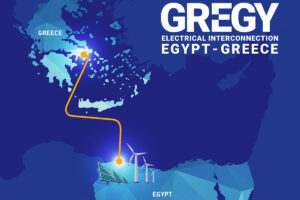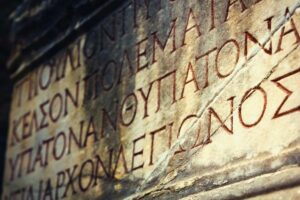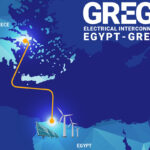Amid rising geopolitical tensions and demographic shifts in Southeast Europe, a growing wave of property acquisitions by Turkish and Bulgarian nationals in Northern Greece, especially in the Evros border region, is raising strategic alarm. This is Encroachment by acquisition: Strategic alarm over property purchases in Thrace.
Analysts, commentators, and former high-ranking officials warn that this trend represents more than just market activity; it may signal an unfolding demographic and national security challenge that Greece can no longer afford to ignore.
The most recent commentary warns of a calculated effort to alter the population composition in key Greek border villages, potentially laying the groundwork for future claims of minority recognition by Ankara and Sofia. The Evros prefecture, in particular, is witnessing a surge in cross-border interest, with implications that extend far beyond real estate. According to the article’s author, this wave of acquisitions is viewed as part of a broader strategy to undermine Greek sovereignty in Thrace and the northern Aegean.
This concern is not unfolding in a vacuum. It is deeply rooted in an increasingly unstable European geopolitical context, characterised by the rise of revisionist agendas from leaders such as Donald Trump, Vladimir Putin, and Recep Tayyip Erdoğan, and compounded by a weakened and fragmented EU security framework. In this fragile environment, Greece’s vulnerabilities are pronounced: a collapsing birth rate, continuous emigration, economic stagnation, and the neglect of critical infrastructure in Thrace are all cited as compounding factors that leave the region increasingly exposed.
The article levels sharp criticism at successive Greek governments for failing to respond to the growing threat. It argues that unless urgent national measures are undertaken—including tax incentives, investment in agriculture and local industry, and a strengthened military presence—Greece risks irreversible territorial and strategic decline. The consequences, the author warns, could be profound: the quiet erosion of Greek sovereignty and identity in its northeastern frontier.
A central concern is the activity of the Western Thrace Turkish Teachers’ Union (BTTÖB), which has been accused of promoting anti-Greek sentiment and acting as a conduit for Turkish soft power. A recent example cited is a poetry competition glorifying the Battle of Gallipoli, seen by critics as an attempt to foster a revisionist narrative within the Muslim minority community in Thrace. The article presents this as symbolic of Ankara’s long-term strategy of cultural influence and demographic engineering.
In calling for immediate action, the writer appeals for the development of a new national strategy focused on protecting Northern Evros and Thrace from what is described as a “Bulgaro-Turkish encroachment.” Without such a strategy, the article warns, the region faces existential decline.
These warnings have been publicly echoed by former President of the Hellenic Republic, Prokopis Pavlopoulos. Speaking recently at the International Scientific Conference “Trauma” in Alexandroupoli, Pavlopoulos outlined Turkey’s three central revisionist goals.
Here, he argued must be decisively blocked by the Greek state. He reiterated that “the Treaty of Lausanne remains fully valid and legally non-negotiable,” accusing Turkey of repeatedly violating both this treaty and international law in order to challenge Greek sovereignty.
Pavlopoulos also condemned Erdoğan’s attempts to interfere with the religious and community life of the Muslim minority in Thrace, calling them part of the Turkish leader’s “almost comical – yet no less dangerous – ‘sultan-like’ fantasies.” He praised the local Greek population for their resilience and refusal to succumb to external provocations, describing Thrace as a bastion of national inspiration.
Turning to broader regional issues, Pavlopoulos criticised Turkey’s continued occupation of Cyprus and warned of the threat it poses to regional stability. He called on the European Union to adopt a stronger stance, including sanctions against Ankara: “Just as strict sanctions have rightly been imposed on Russia for its brutal invasion of Ukraine, the same must apply to Turkey for its aggressive behaviour towards Greece, Cyprus, the EU, and the broader international community.”
Public concern over Turkish influence in Thrace was also reflected in recent Greek-Australian media coverage. On the Trade Guides programme aired by 3XY Radio Hellas last Saturday, several listeners expressed alarm over reports of Turkish-linked property purchases in the region. One caller proposed a practical, community-driven response: the formation of a Greek-Australian shareholder scheme to collectively acquire and protect land in strategic border areas. The aim would be to safeguard national interests through diaspora investment and solidarity.
As strategic pressure mounts along Greece’s northeastern border, the message from both officials and citizens is increasingly urgent: without immediate, sustained, and coordinated national action, Thrace could become a quiet casualty of 21st-century hybrid influence and demographic warfare.










